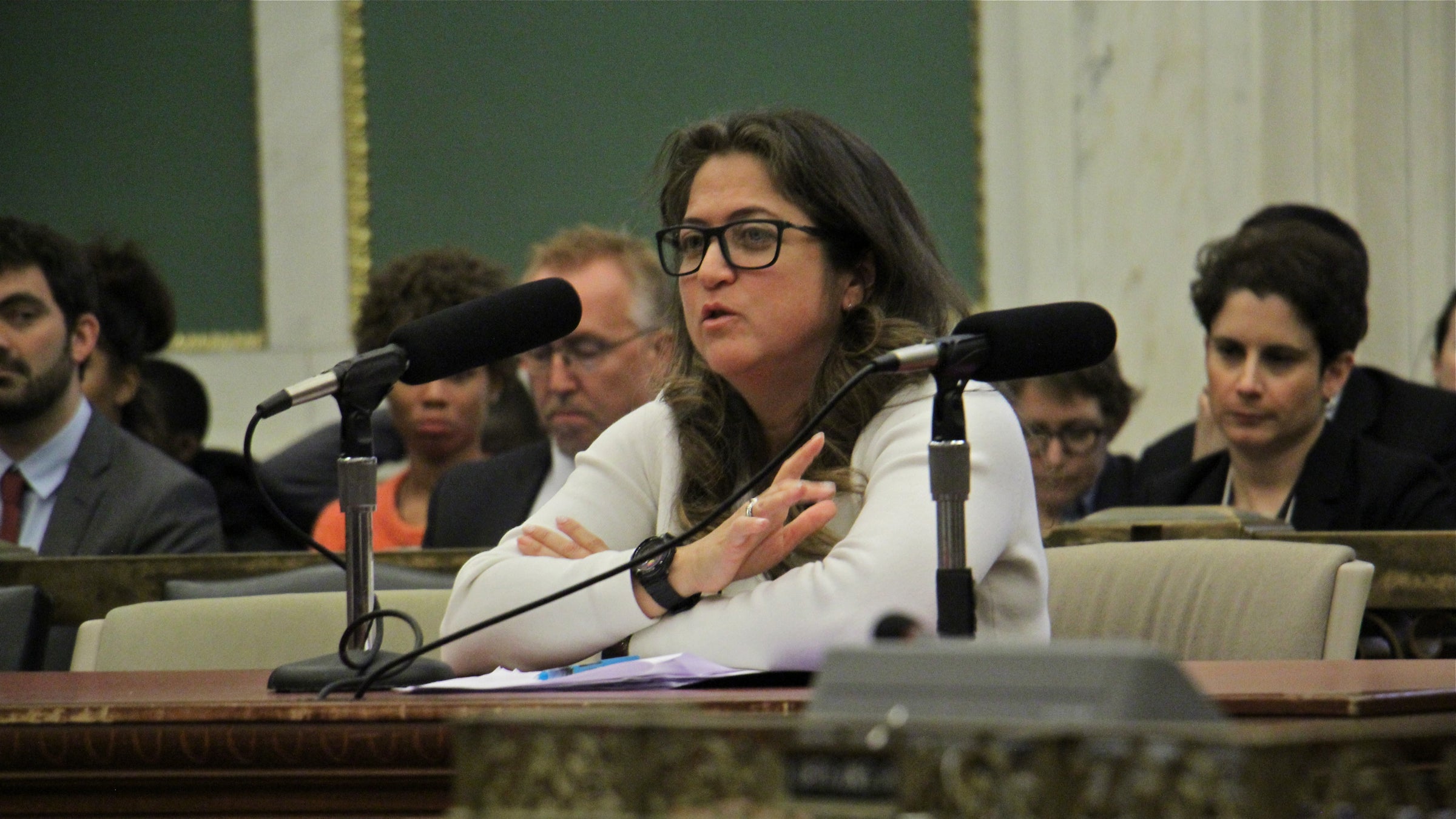Philadelphia to stop billing parents of incarcerated teens for ‘child support’
Listen
Cynthia Figueroa, commissioner of the Philadelphia Department of Human Services, testifies during a City Council hearing about the detriment of collecting the costs of juvenile confinement from parents and guardians. (Emma Lee/WHYY)
Philadelphia’s Department of Human Services said it will no longer charge parents for child support if their children are sent to jail.
The announcement came just hours before a City Council hearing on the practice, where Kameelah Spears-Davis testified that, every week, DHS docks $13 from her paycheck.
Her son spent almost nine months in juvenile justice facility for getting into a fight at school. After he came home, she started getting letters and assumed they were about child support from her son’s father, who never paid up. So, she ignored the notices.
“So when I finally open it, I’m flabergasted that I’m being taken to court for child support for my son,” said Spears-Davis, who works nights as a security guard.
In addition to the $13 deducted from her weekly paychecks, her employer charges her a $1.88 processing fee. DHS has also taken about $7,000 from her tax refund, she said.
Now, Spears-Davis told Council members she has no money to treat her family of five to, say, dinner and a movie.
“I can’t take $60 out of my budget for pizza night when it’s gonna offset me paying my bills,” she said. “It was already very tight and now, there’s nothing left over.”
In the fall, legal advocates working with people in a similar situation warned officials about what they called “double punishment” for low-income families in Philadelphia whose children are disproportionately incarcerated.
The city’s DHS Commissioner Cynthia Figueroa said the agency agrees.
“We’re immediately working with the law department and a contractor to stop collection and anything that’s in active order,” Figueroa said.
It’s not clear how soon Spears-Davis could see her weekly payments stop — or whether she’ll be able to recoup any of the money she’s already paid, or even how DHS will make up the $500,000 it was collecting in child support from parents of incarcerated young people each year.
Jessica Feierman with the Juvenile Law Center and other advocates said there’s even more work to do.
“We heard recently from a young man who had his ankle bracelet on, took a shower, the ankle bracelet was damaged, ended up having to pay for the ankle bracelet,” she said. “There are a lot of different ways where young people are still having to pay money into the system.”
Feierman urged Council members to consider Friday’s announcement as just a first step.
WHYY is your source for fact-based, in-depth journalism and information. As a nonprofit organization, we rely on financial support from readers like you. Please give today.




